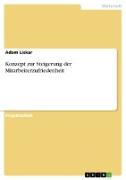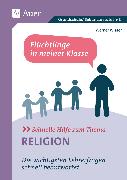- Start
- The Role of Analogical Reasoning in Cue Evaluation for First Responders
The Role of Analogical Reasoning in Cue Evaluation for First Responders
Angebote / Angebote:
Doctoral Thesis / Dissertation from the year 2014 in the subject Psychology - Miscellaneous, grade: 24.00, , language: English, abstract: During a casual conversation, a law enforcement officer claimed that the type of cues that a novice officer selected determined his/her eventual success in becoming a skilled decision maker. Previous literature in cognition and developmental psychology has suggested a similar phenomenon. Gentner, Holyoak and Kokinov state that analogical reasoning is correlated to cue evaluation in problem solving and in decision making (2001).
In order to explore this further, a two part study was employed. In the first part, law enforcement officers and firefighters with more than ten years of experience were interviewed about training, cues and standard operating procedures. Then, these officers assisted in creating the testing materials. In the second part, law enforcement and firefighting officers took the test which consisted of an analogy test and an evaluation of important cues within scenarios.
The results of the study suggest that law enforcement officers use analogical reasoning to determine cues within a scenario but firefighters do not. The law enforcement officers who were good at identifying important cues were also good at matching less obvious word meanings. Firefighters who were good at identifying important cues were poor at matching less obvious word meanings.
When the decision making procedures from both sets of subject matter experts were reviewed, firefighters stated that a standard operating procedure based on heuristics is used. Law enforcement officers stated that reasoning skill is a strong component of standard operating procedure. The study produced training recommendations for firefighters and law enforcement officers.
Folgt in ca. 10 Arbeitstagen




